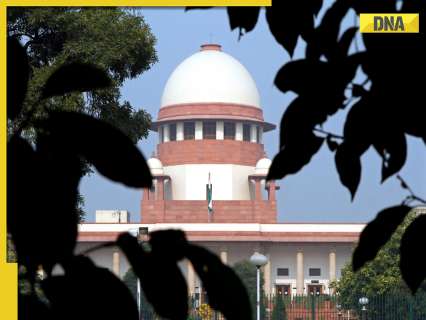
In a landmark interim order on the contentious Waqf Amendment Act, 2025, the court has rejected the plea to stay the act entirely. However, it has suspended some of the provisions of the Act. Known in detail.
In an interim order that may have far-reaching consequences to the Muslim community and the management of their properties as well as their politics, the Supreme Court has suspended certain provisions of the Waqf Amendment Act, 2025. However, the bench consisting of Chief Justice of India BR Gavai, Justice AG Masih, and Justice AG Masih refused to stay the act in its entirety. The main points of the interim order are as follows:
1. The bench suspended the provision that only a lawful property owner who has been practicing Islam for at least five years can create a waqf through a formal deed. The bench also said that the provision may take effect only after the government frames the rules to determine how a Muslim adheres to his religion.
2. The apex court suspended the provision that empowered the district collectors to decide whether a property claimed as waqf actually belonged to the government.
(Central Waqf Council)
3. The Supreme Court suspended the provision that allowed the government to derecognise a Waqf land during the pendency of a decision by the Govt officer on the dispute of encroachment. SC said the order allowing the Collector to decide the dispute is against the separation of powers.
4. The three-judge bench of the apex court held that the mandatory registration of waqf properties on a centralised portal cannot be interfered with.
5. It suspended the provision authorizing the collector to determine the nature of the property or alter the revenue record. It also said that any such determination must remain subject to the adjudication of the waqf tribunal or the concerned High Court.
6. No third-party rights can be created until the proceedings are concluded.
7. The Supreme Court also said that the Central Waqf Council cannot have more than four non-Muslim members. It is an advisory body under the Union Ministry of Minority Affairs and is chaired ex officio by the Union minister.
8. Similarly, state waqf boards should not have more than three non-Muslim members.
9. It also said that the chief executive officers of the waqf boards should preferably be Muslims.
10. The apex court bench did not interfere with the condition of registration but granted certain timeline extensions.
FAQs
Q1: What the Supreme Court has said about the provision on who can be create a waqf property?
Ans: The bench suspended the provision that only a lawful property owner who has been practising Islam for at least five years can create a waqf through a formal deed. The bench also said that the provision may take effect only after the government frames the rules to determine how a Muslim adheres to his religion.
Q2: Who can be a member of the Central Waqf Council?
Ans: The Supreme Court has said that the Central Waqf Council cannot have more than four non-Muslim members. It is an advisory body under the Union Ministry of Minority Affairs and is chaired ex officio by the Union minister.
Summary
In an interim order that may have far-reaching consequences to the Muslim community and the management of their properties as well as their politics, the Supreme Court has suspended certain provisions of the Waqf Amendment Act, 2025. However, the bench consisting of Chief Justice of India BR Gavai, Justice AG Masih, and Justice AG Masih refused to stay the act in its entirety.





